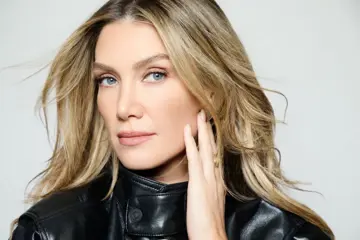Mental wellbeing, or self-care, is finally a hot topic in the music industry, as artists become ever more DIY — and competitive. Viv Fantin is an accredited personal coach, uniquely assisting those employed in the creative industries — from composers and performers to executives — to handle pressure and achieve that life balance. And, at this year's BIGSOUND, she'll be leading the workshop Tune Out Your Inner Critic.
Fantin knows all about the demands of the music business. She commands legendary status as an entertainment publicist in Sydney and beyond. "I've been around the Australian music industry forever!" Fantin acknowledges. Indeed, she went from gigging in-house at Festival Records to being the national publicity director of Big Day Out ("in the glory years, from 1993 to 2006") to plugging other iconic music festivals. Even today, she still works with APRA (Australasian Performing Right Association).
However, Fantin has gradually made the transition from PR to media trainer to personal coach — launching Next Act Coaching in her adopted Byron Bay home in 2015. "I shifted directions because I was basically burnt-out from years of saying, 'Yes,' to everything; not giving myself enough downtime or having strategies to manage stress," she shares. "I'd always been interested in the 'helping' professions, so coaching felt right to me." Fantin sees herself as a "recovering perfectionist". "A lot of the issues that are presented to me are ones that I have personally experienced."
A coach's primary role is to listen, analyse and guide clients. "There are plenty of different types of coaches: business and executive coaches, career coaches, fitness coaches, etc," Fantin explains. "I'm a personal coach working specifically with people in the creative industries. I help clients set meaningful, and realistic, goals and help them discover their strengths. I also help identify fears and unhelpful behaviours like self-doubt, perfectionism and its evil twin, procrastination. As a coach, for me the most important goal is to help the client close the gap between where they are and where they want to be." But there is a key qualifier. "You can't judge people," Fantin emphasises.
Don't miss a beat with our FREE daily newsletter
The creative coach is a new — and niche — phenomenon. "I think I may be the only coach out there — so far — specialising in the music industry," Fantin suggests. That said, her clientele is surprisingly wide. "My clients are mostly, but not exclusively, women and a combination of music artists and the people who work behind the scenes with music artists: label managers, publishers, managers and publicists. Interestingly, the age demographic is mixed. Some are middle-aged people who are tired of the way they work and want to find new ways to achieve greater happiness in the workplace. Then I have much younger clients; 20-something music biz workers who are proactively trying to achieve a sense of work/life balance and create strong boundaries around when work ends and home life begins." Conveniently, Fantin liaises with users both over Skype and in person (she visits Sydney bimonthly).
As for the most common dilemmas confronted by especially music-makers? "Boundaries, or [the] lack of them, is a recurring theme," Fantin reveals. "There's a real issue with being unable to disconnect properly from work. People feel they have to be constantly available and are afraid of the consequences if they choose to switch off for the evening. Perfectionism is another big one. It can totally paralyse people and kill creativity."
Fantin admits that social media exacerbates anxiety — artists compelled to not only engage with fans, but also to closely follow their peers. "I think social media has created a real issue with musicians falling into the comparison trap," she observes. "Our ability to curate social media can make everything look glossy and easy."
As a veteran, Fantin welcomes the fact that the music world is now recognising the significance of psychological welfare. "I feel there are a lot of positive changes happening, in that people are far more aware of the mental health challenges faced by people working in the music industry," she says. "[But] I think some organisations could do more to encourage their staff to disconnect when they leave their place of work. All of that needs to be role-modelled from the very top."
Personal Coach Viv Fantin's Three Self-Care Tips For Musicians
1. Re-think your relationship with stress
Often our perception of stress is greater than the thing that's stressing us. Ask yourself these questions: "Is what I'm stressing over within my control? Do I have the ability to influence the outcome?" If not, then try and let it go. Also ask yourself, "Will any of it really matter in a week, in a month, or in a year?"
2. Don't say "yes" when you really mean "no"
Constantly saying "yes" to the needs of others can often mean no time left to attend to your own. Your personal goals and self-care get put on the back burner and then resentment starts to kick in.
3. Challenge that perfectionist thinking
Perfectionism is subjective. What evidence do you have that something is either perfect or not? Let's face it, it takes energy and time to be 'perfect'. Do an audit on how much time it's taking you to be perfect or do perfect work. Are you re-writing, re-checking [and] re-recording to the point where other aspects of your life are being impacted? Ask yourself, "What's the worst thing that can happen if you do work that's less than perfect?" Make good-enough great.















